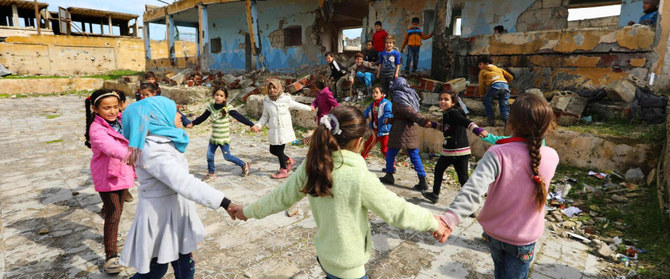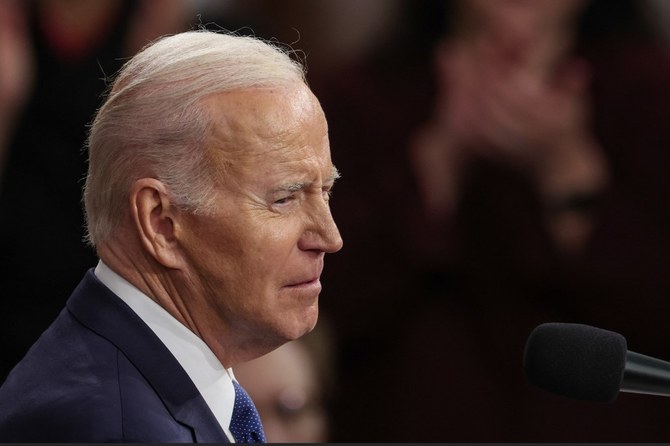
In the 1950s, the UN secretary-general at the time, Dag Hammarskjold, famously stated that the organization “was not created to bring us to heaven, but to save us from hell.” Today, as the flames of hell encircle the globe, the UN may not be as effective as it once was, but its presence remains crucial.
The Turkish parliament last week received a presidential decree approving the establishment of a UNICEF global office in Istanbul. The agency will relocate to the Istanbul office its key operations, including human resources, emergency operations and major finance and administration units. The Turkish side stated that this relocation aligns with Turkiye’s vision to turn Istanbul into a UN hub akin to New York and Geneva, in line with the country’s humanitarian foreign policy.
UNICEF is the UN agency responsible for providing humanitarian and developmental aid to children worldwide. The most authoritative body for monitoring and enforcing children’s rights at the international level is the Committee on the Rights of the Child, which operates under the UN. Additionally, UNICEF is tasked with advocating for the protection of children’s rights, ensuring the fulfillment of children’s basic needs and creating the necessary opportunities for children. Within this context, UNICEF Turkiye will provide social protection, child protection and education services to thousands of children and families.
The safety and protection of children is a global concern, particularly amid the many new wars and geopolitical conflicts seen today. Many children are living in a world where their fundamental rights are increasingly being violated every day. In recent years, we have been bombarded with devastating reports of children suffering death, abuse and violence — tragedies that the international community has shamefully failed to prevent.
Many children are living in a world where their fundamental rights are increasingly being violated every day
Sinem Cengiz
In conflict zones, 468 million children struggle to survive, while 43.3 million children are living in forced displacement. However, beyond conflict areas, children’s rights are also under significant threat as many developed countries are witnessing cases of sexual and physical abuse against children.
Not a day goes by without news of the tragic death of a child. For instance, the murder of an 8-year-old girl, Narin Guran, in Turkiye in August raised further concerns over the safety of children, as the incident was not an isolated one. According to a report by the FISA Child Rights Center, at least 343 children in Turkiye lost their lives due to preventable causes in just the first half of 2024. The report revealed that 95 of these children lost their lives in traffic accidents, 32 died by suicide and 33 died in workplace incidents — a clear indication that child labor continues to be a critical issue. Most alarmingly, 23 of the children were victims of various forms of violence.
Although it is hard to access official data, advocates and journalists claim there are thousands of missing child cases, which is seriously concerning. Concerns over the safety and vulnerability of children have also increased following the Feb. 6, 2023, earthquakes in Turkiye and Syria, after which a Turkish parliamentary earthquake investigation commission reported that 1,118 surviving children were missing or potentially abducted in Turkiye’s impacted region.
The UN and all its member states must prioritize the protection of all children, especially those who are child laborers, child soldiers or victims of sexual and/or physical violence. It is also crucial to safeguard the rights of refugee children. In addition to all this, thousands of children are abducted or go missing each year for various reasons.
Refugee children are another group deprived of fundamental children’s rights. Although children make up less than a third of the world’s population, they tragically account for nearly half of the global refugee population.
Turkiye’s collaboration with UN agencies is a significant step in ensuring that children’s rights are prioritized
Sinem Cengiz
According to an agreement signed between Turkiye and the UN in November 2022, the UN will also open an Office for the Coordination of Humanitarian Affairs in Istanbul. Turkiye currently hosts the largest registered refugee population in the world. As members of refugee families, children need further care. The OCHA will accelerate humanitarian assistance delivered from Turkiye to Syria, where many children are displaced or deprived of their fundamental needs.
There is a systemic failure in child protection across the world. The field of child rights is one of human rights and global policymaking. Turkiye has the relevant instruments to ensure refugee child protection, yet its collaboration with UN agencies is a significant step in advancing child protection measures and ensuring that children’s rights are prioritized in national and international agendas. By working closely with UN agencies, Turkiye can enhance its policies, improve support systems and effectively address the root causes of child vulnerability, ultimately fostering a safer and more equitable environment for all children, including refugee children.
Children need stable and safe spaces in a caring family environment. Toward this aim, a strong and sustainable civil society is an important lever for change. Although children’s rights are guaranteed in the broadest sense by the UN Convention on the Rights of the Child, significant responsibilities fall on states, civil society organizations and communities in terms of the processes for protecting and implementing these rights. Effective measures need to be implemented by states. As critical as political, economic and climate issues are, the protection of children’s rights is just as serious because these children are our next generation, our future.
• Sinem Cengiz is a Turkish political analyst who specializes in Turkiye’s relations with the Middle East. X: @SinemCngz












